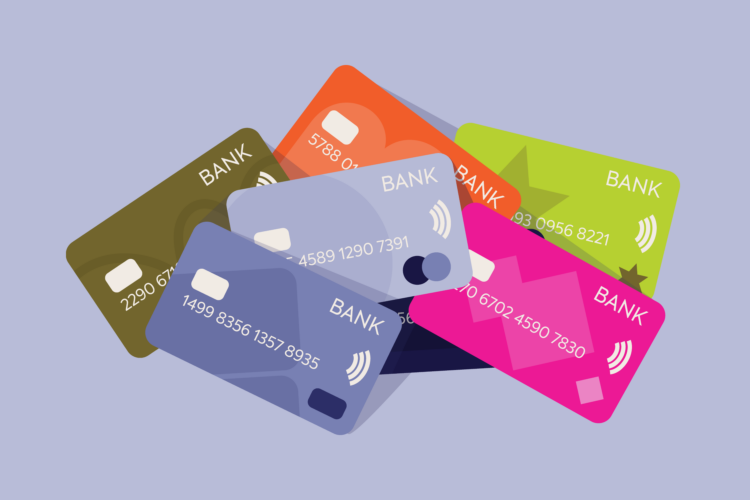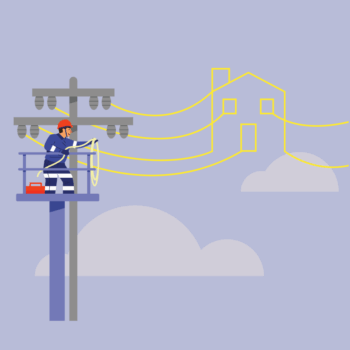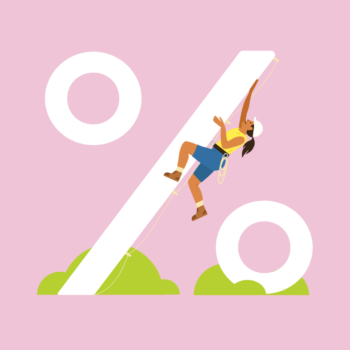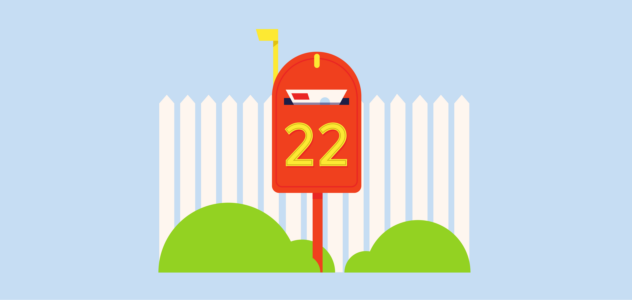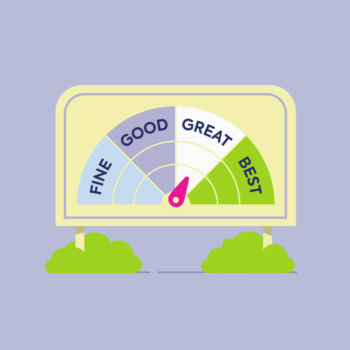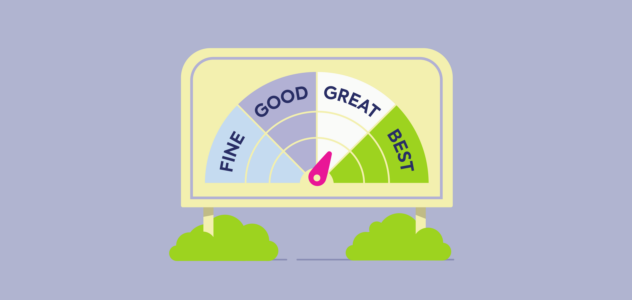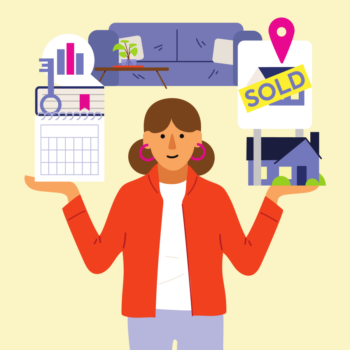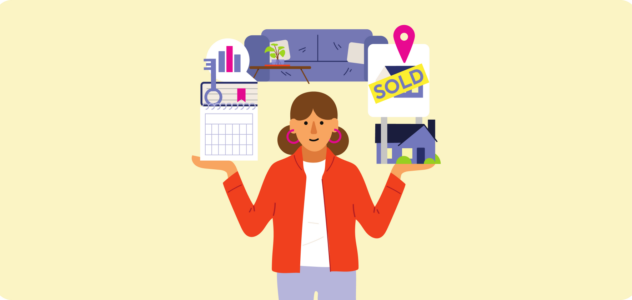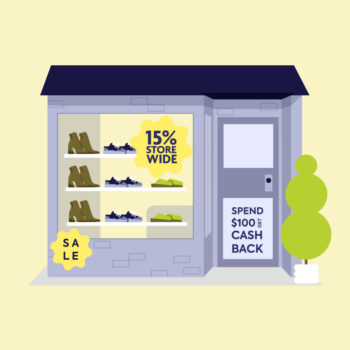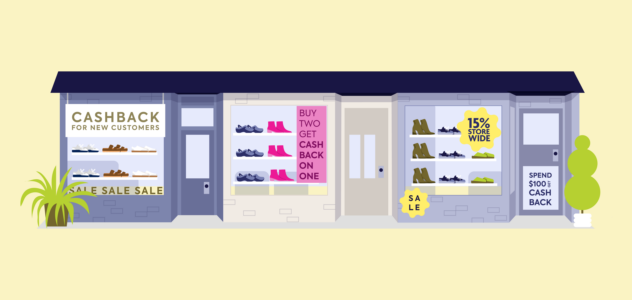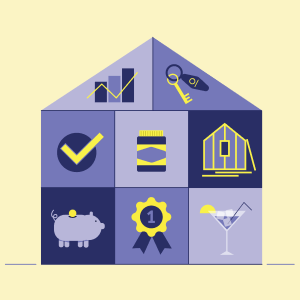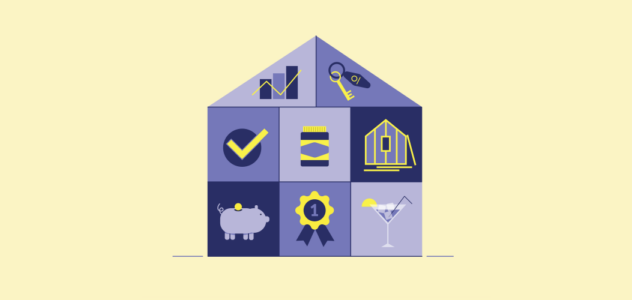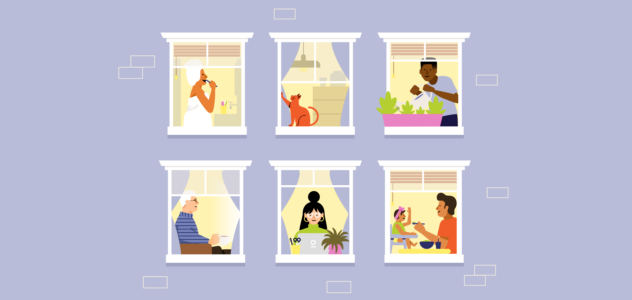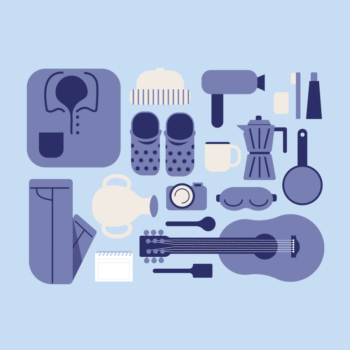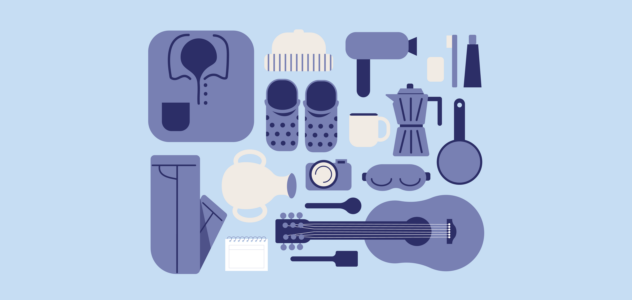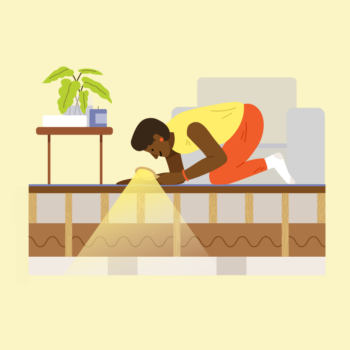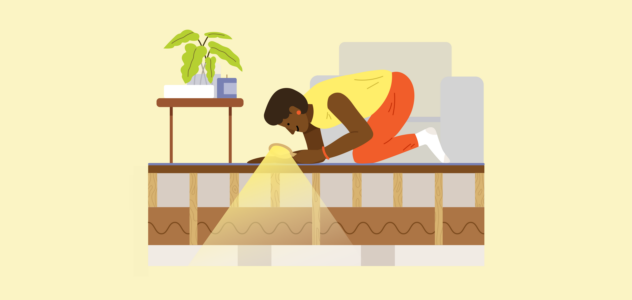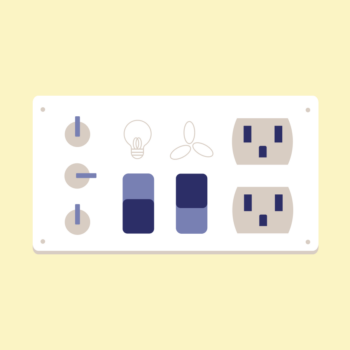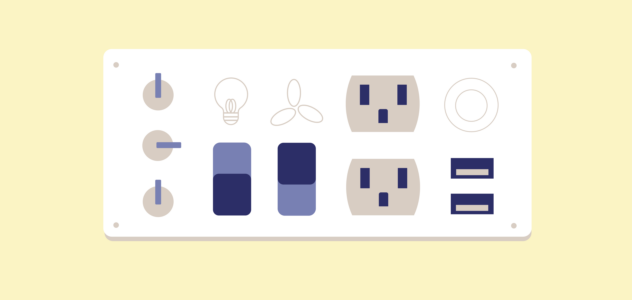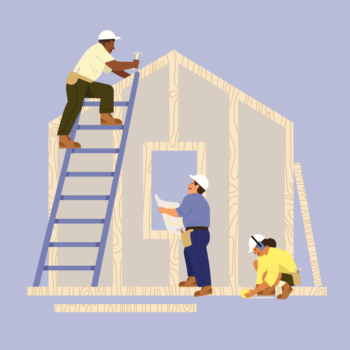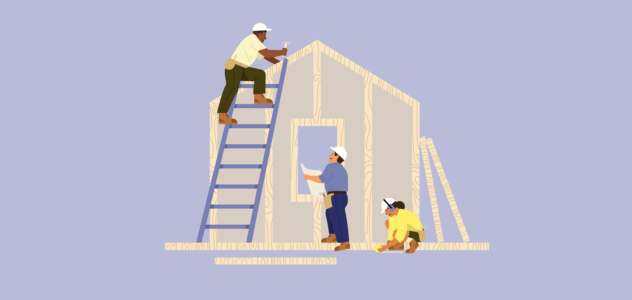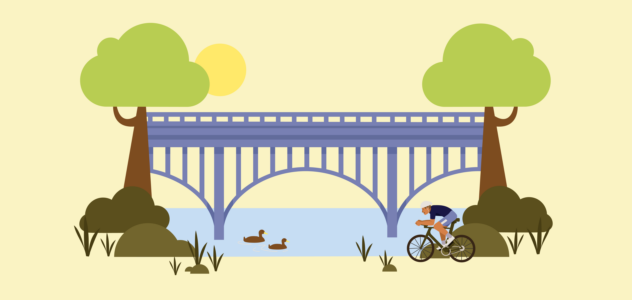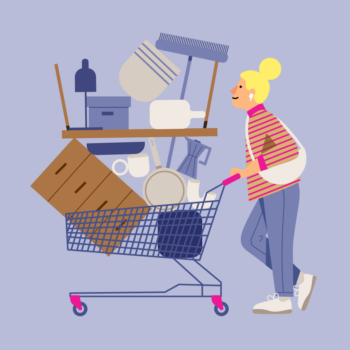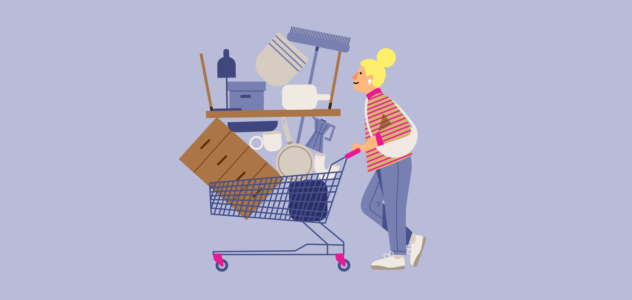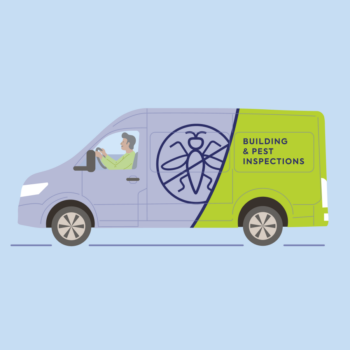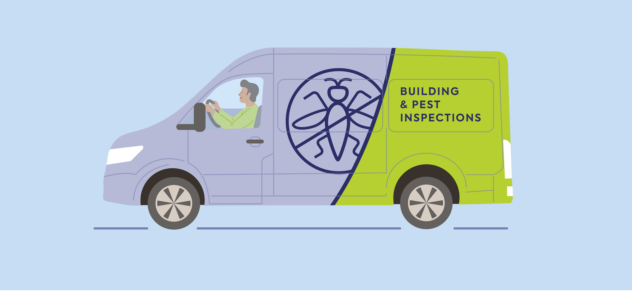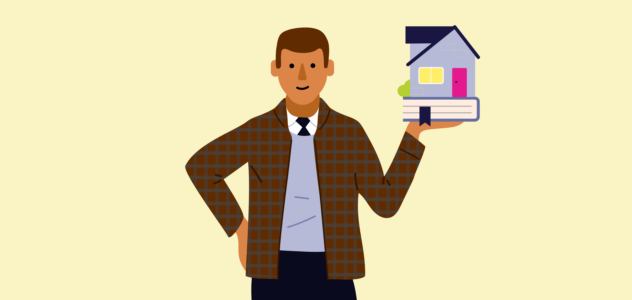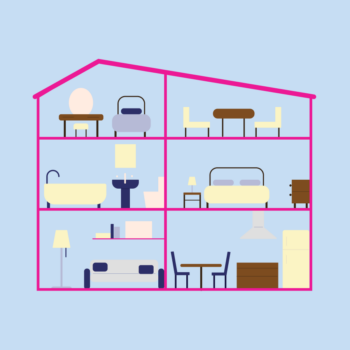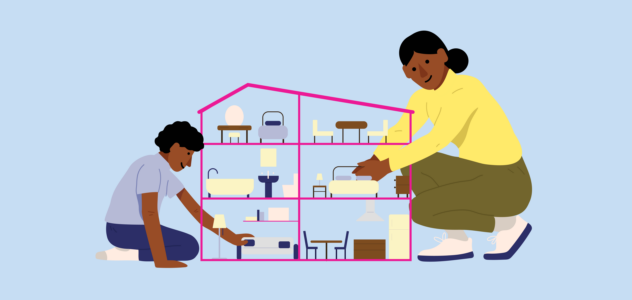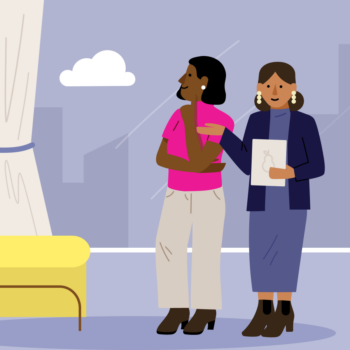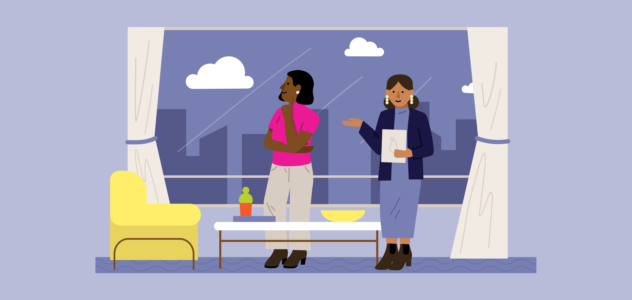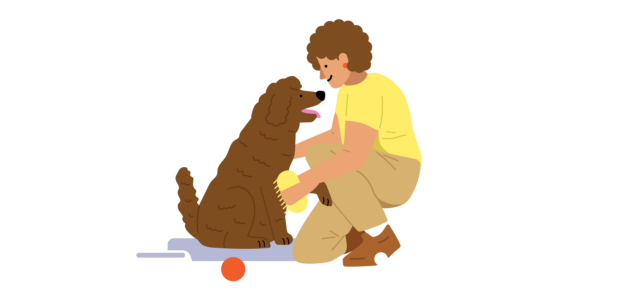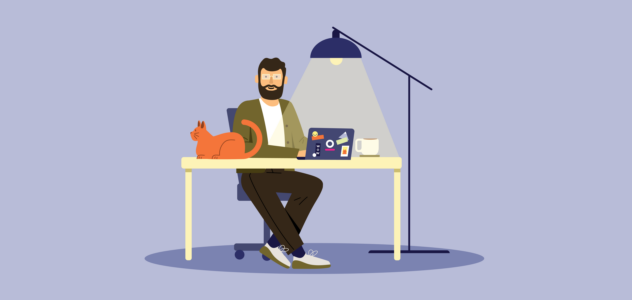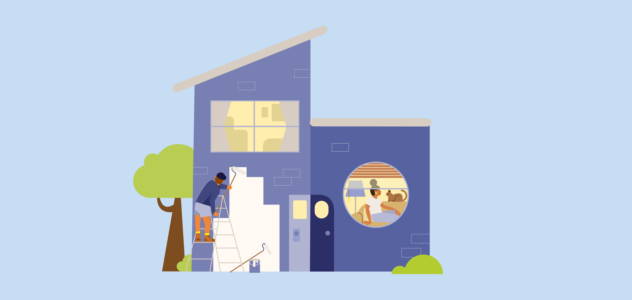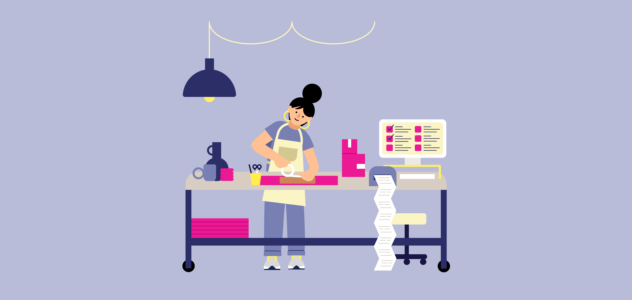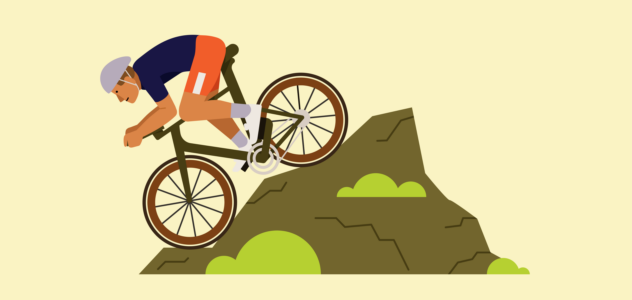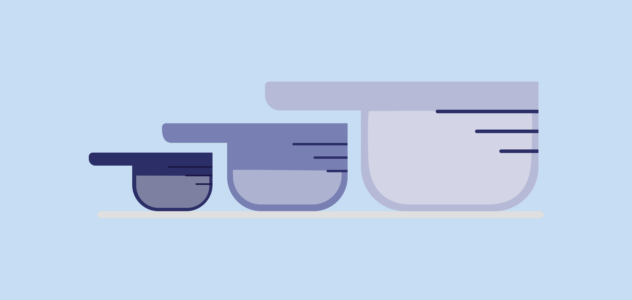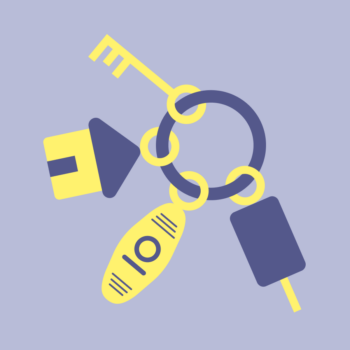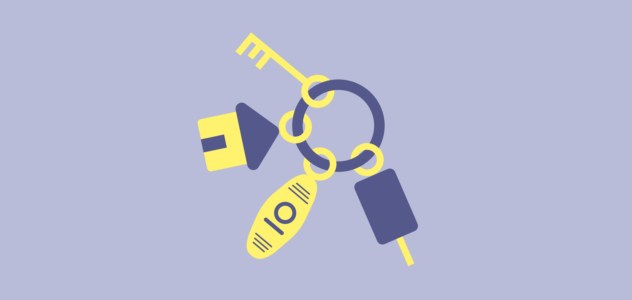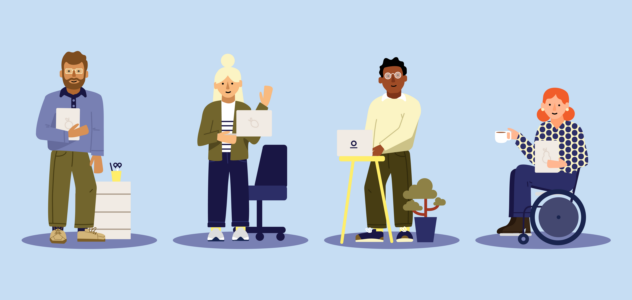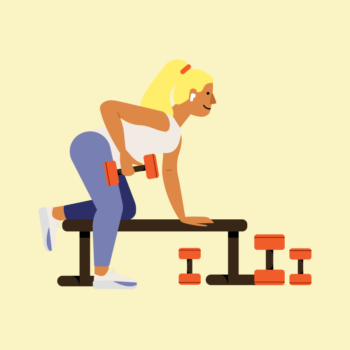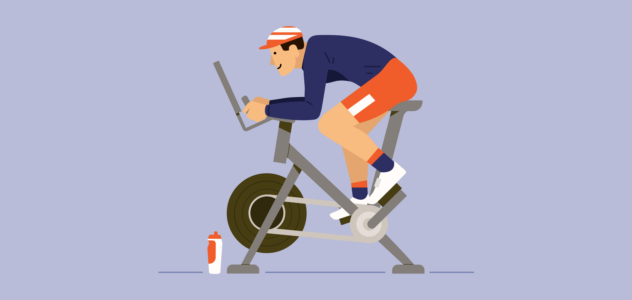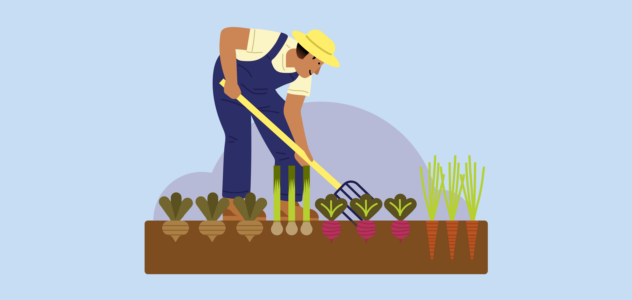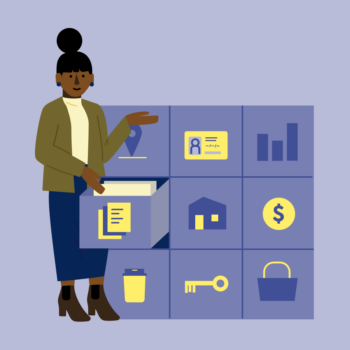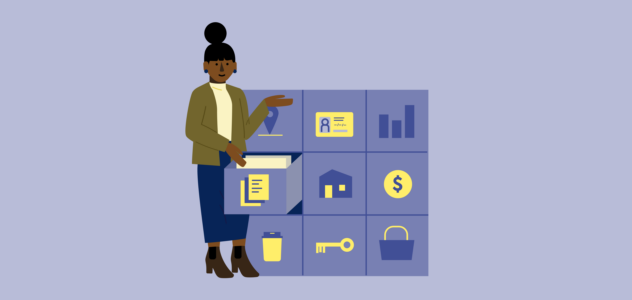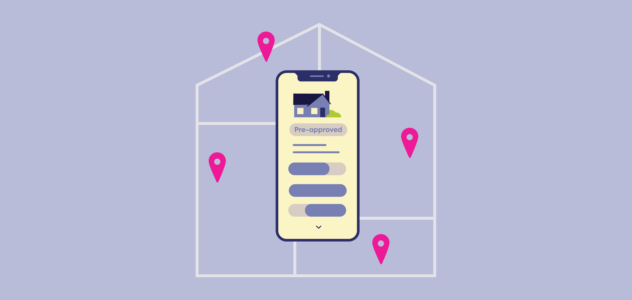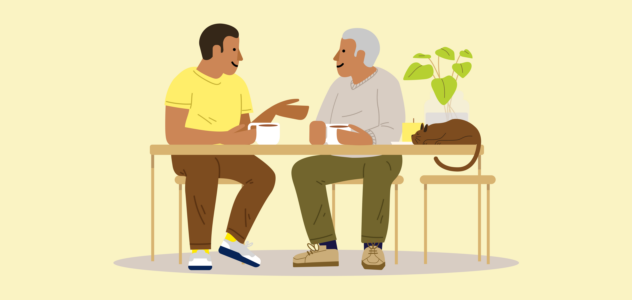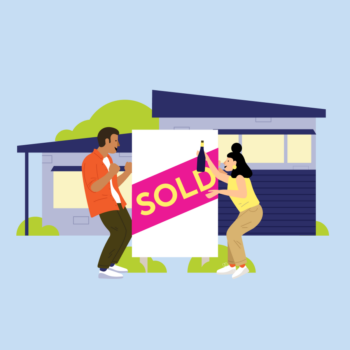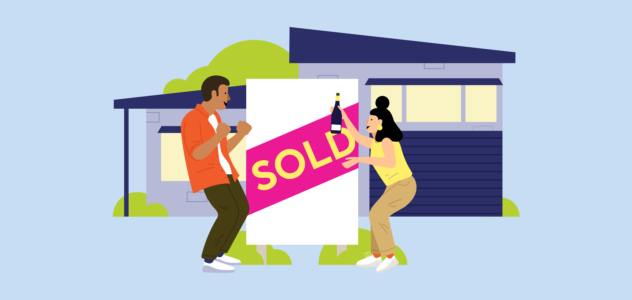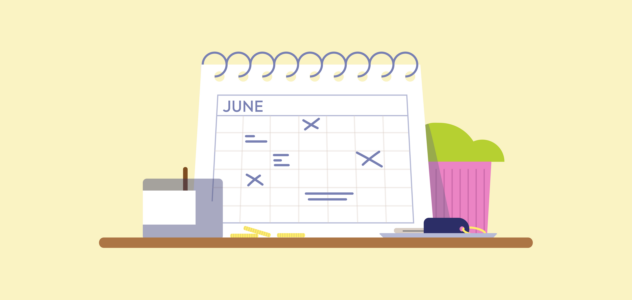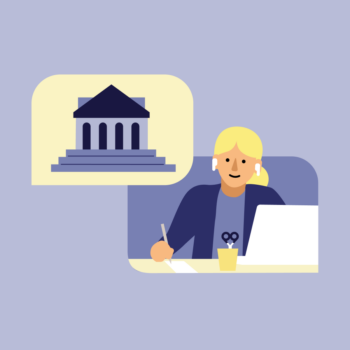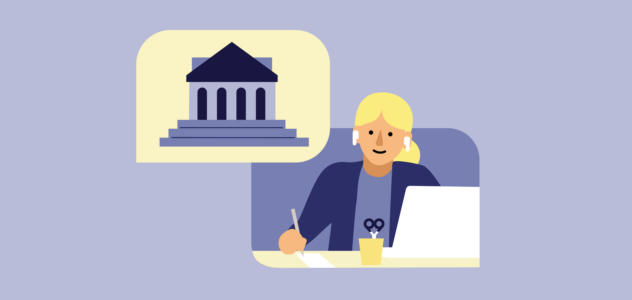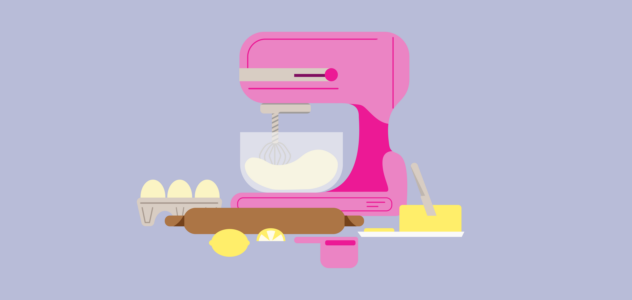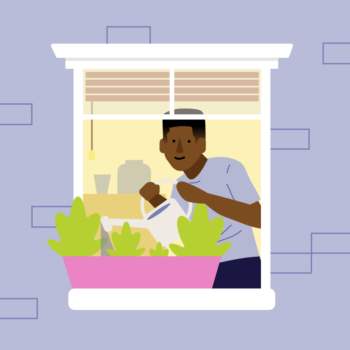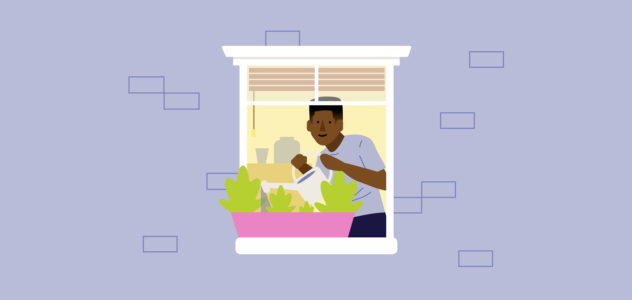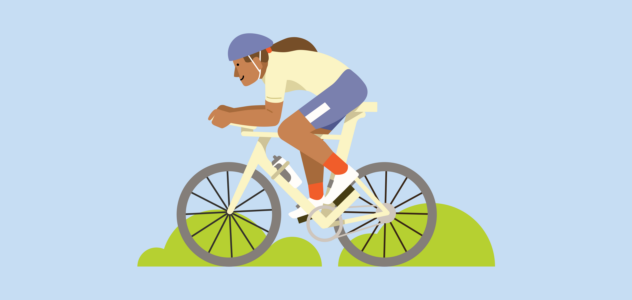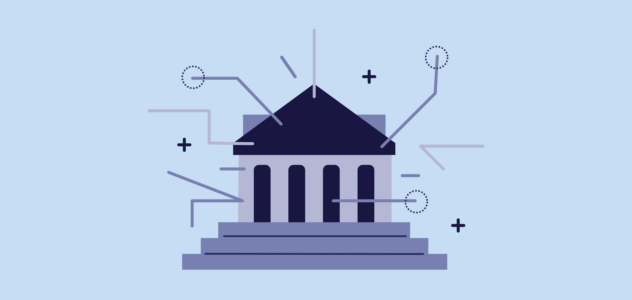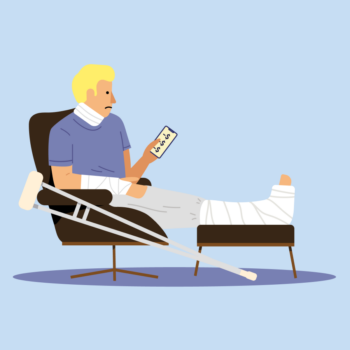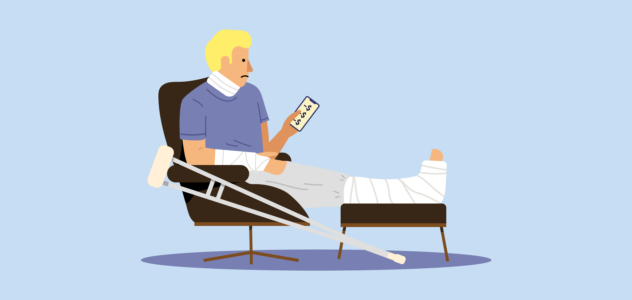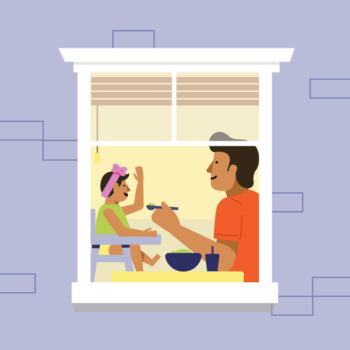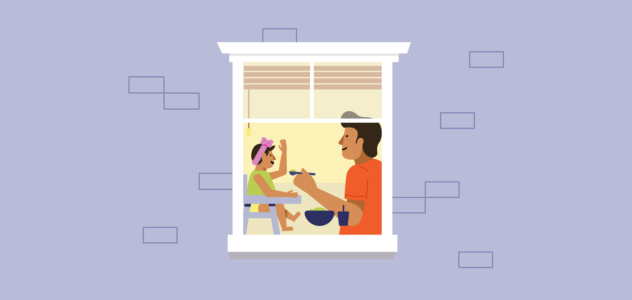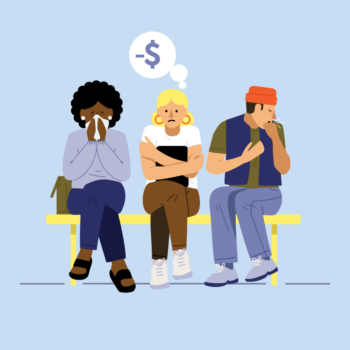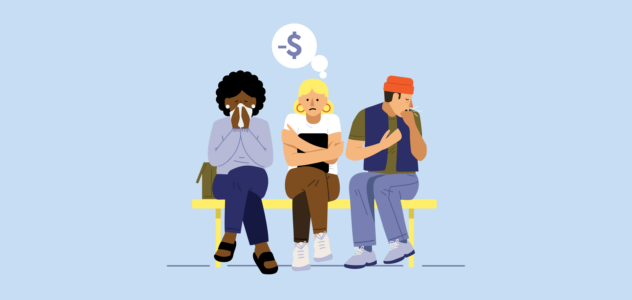When you apply for a new home loan, there’s one *main* question a lender wants to know: will you be able to pay it back?
Kinda fair enough, we think.
And to help themselves answer this question and feel confident lending you money, they’ll take a close look at your situation and weigh up things like your income, expenses, debts, dependents, job history, and of course — credit history.
So yes, a credit card will affect your home loan (even if you rarely use it or always pay it back on time).
But to what extent? That depends on your situation. For example, having higher credit card limits will reduce your overall home loan borrowing capacity, while having a whole lot of debt on your credit cards may reduce your chance of being approved for a home loan at all…
So, let’s look at…
- How does a credit card affect your home loan application?
- How *much* does a credit card impact your mortgage?
- What can you do to increase your chance of being approved?
- Why does decreasing your credit limit increase your borrowing capacity?
- Should you close your credit cards before applying for a home loan?
Oh, and before we dive in, know that having a credit card isn’t necessarily a *bad* thing. But it *is* something lenders will take into account before they open their (metaphorical) wallets.
First thing’s first, here are some useful terms to know
Borrowing power
The amount a lender is willing to lend you.
Credit score
A number that rates your “creditworthiness” (AKA how likely, based on past behaviour, you are to pay your loan back on time). You can check your credit score yourself or with the help of a home loan expert (that’s us!)
Credit history
A summary of your past borrowing and repayment behaviour, such as credit card accounts and other loans (this is used to create your credit score).
Credit card limit
The maximum amount you can spend with your credit card.
So, how does a credit card affect your home loan?
There’s no sidestepping it: lenders *will* review your credit cards (as well as any other liabilities you hold) when you apply for a home loan as it gives them a good indication of how much “risk” they’re taking on by lending you money.
And here’s the clincher: even if you don’t use your credit card or you always pay it back on time, it’ll still impact the amount you’ll be able to borrow. That’s because it’s your credit limit that counts, *not* the debt that’s outstanding (AKA how much you’ve used).
For example, say you’ve only spent $500 on a credit card with a limit of $15,000, the lender will factor in $15,000 when deciding how much to lend you — not $500.
If in doubt, a mortgage broker (or home loan expert as we like to call them) can help you understand the ins and outs of your credit card situation.
Get personalised mortgage advice
Speak to a Finspo mortgage broker about your next home loan move. 100% online & free.
How much does a credit card impact your mortgage?
There’s no rule book for how *much* a credit card impacts your mortgage.
It may have a significant impact, or it may just be a minor consideration — every situation is unique.
But if we were to narrow it down, there are two main things that can determine how much a credit card impacts your mortgage — the size of your credit card limit and the way you use it.
The size of your credit card limit
Your credit card limit will reduce your maximum borrowing power. This is because lenders plan for the worst case scenario — that’s so if you *do* spend the full credit card limit and need to repay it over a period of 3 years, you can (whilst also making your home loan repayments). As a rough rule of thumb, you can assume your total borrowing power for a new mortgage will reduce by 5 – 6 times your combined credit limits.
For example, let’s say based on your financial situation (income, expenses, assets & liabilities) you have a total borrowing power of $800,000 excluding your credit card.
In this same situation, if you have 2 credit cards with a combined credit limit of $10,000, then you could expect your total borrowing power to reduce by around $50,000 to $60,000 (down to $740,000 – $750,000).
Ooft, that’s quite the difference!
The way you use it
Your credit card behaviour can put a significant bearing on your home loan borrowing power — it may even impact your ability to be approved at all. For example, if you keep doing things like getting new cards, missing repayments, balance transfers or incurring interest, this is a sign you may not be able to responsibly manage debt (a big red flag for lenders). This can impact your credit score and the likelihood of being approved.
In saying that, if you use your credit card responsibly, you’ll still most likely have home loan options (it may just be fewer options than if you didn’t have a credit card).
“Ok, I’ve got a credit card. How can I increase my chances of getting a better loan?”
We’ve said it once and we’ll say it again: having a credit card isn’t necessarily a bad thing.
But there are smart ways to go about using a credit card, and, well, not-so-smart ways.
When you’re applying for a home loan, you could improve your credit score by…
Paying your credit card on time
Yes, lenders look at this.
Paying off any other loans
Have a personal loan? Student loan? Car loan? If you’ve got the capacity, paying off these loans can help improve your borrowing power.
Lower credit card limits
Lenders take into account your credit card limit — not the amount you’ve used. So if you’re not planning on using the full amount, why not lower it?
Remember, your total borrowing power for a new mortgage will usually reduce by 5 – 6 times your combined credit limits.
So for example, with a $20,000 credit limit, your borrowing power could reduce by $100,000 – $120,000. Woah. But, if you reduce your credit card limit from $20,000 to $10,000, your borrowing power will only be expected to reduce by $50,000 – $60,000. That’s a whopping difference (especially if it’s money you’re not even using).
Getting rid of your credit card
If you’re not using it or could go without, paying off and getting rid of your credit card altogether can be a big thumbs up in the eyes of a lender.
In some cases, lenders will actually request you lower your credit card limit before they approve your loan.
“Should I close my credit cards before applying for a home loan?”
It depends.
If you don’t *need* your credit cards or you rarely use them, it could be a good idea to close your credit cards and increase your borrowing power.
But in saying that, closing your credit cards might not always be an option. You might need them for daily expenses and cash flow — or you could be holding onto them for emergencies. That’s ok, too.
Many people have credit cards and home loans at the same time, the main thing is to be aware of the potential impact credit cards will have on your home loan options.
“Alright then, can I get a new credit card once my home loan is approved?”
Technically, yes. Buuuut it all depends on the credit assessment of your credit card provider (which might be the same as your home loan provider).
See, when you apply for a new credit card after your home loan is approved, they’ll look at your total financial position. That means they’ll factor in your shiny new home loan and its repayments. A similar assessment will be made around your total liabilities and your ability to make the repayments with your regular income and expenses. So yes, it’s possible — they’ll just want to triple check you’ll be able to pay it back.
Get personalised mortgage advice
Speak to a Finspo mortgage broker about your next home loan move. 100% online & free.
The bottom line: yes, a credit card affects your mortgage application. But exactly how much depends.
If you take anything away from this, we’d like it to be this: lenders *will* take into account your credit card before approving your home loan application. But, how much weight they place on it depends on your credit card limit and the way you use it.
This is good news because you typically have control over these factors.
If you’d like to know how your credit card behaviour will affect your mortgage application (and ways to increase your chance of getting approved) a great first step is to speak to a mortgage broker.
They can help assess your unique situation, looking at the big picture, and let you know how you could potentially increase your borrowing power.
It’s as easy as 1, 2, 3…
- Book a chat with a friendly Finspo expert (online, phew!)
- Tell us about yourself and provide any additional info
- We’ll do the heavy lifting and present you with some loan options (including cashback offers), so you can choose your approach
